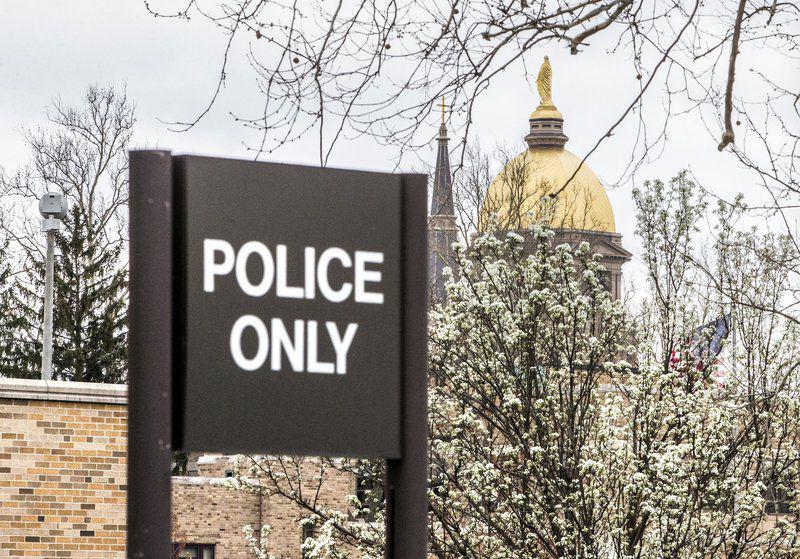|
Notre Dame wins police records lawsuit filed by ESPN
By Margaret Fosmoe
[with pdf] The University of Notre Dame's campus police department is not a "public agency" under Indiana law and does not have to provide information about investigations requested by sports media company ESPN, the Indiana Supreme Court has ruled in a widely watched case. The decision, released Wednesday afternoon, means Notre Dame and other private colleges in Indiana with police forces have no obligation to provide details of campus police reports and investigations. City, county and other professional police forces must make such information available to the public under Indiana's Access to Public Records Act. "We are pleased but not surprised by the decision," said Notre Dame spokesman Paul J. Browne. "The Court took a careful look at APRA and unanimously concluded that the statute’s plain language made clear that it did not apply to private university police departments." ESPN, based in Bristol, Conn., said in a statement, "We are extremely disappointed by the ruling and what it represents for public transparency." ESPN reporter Paula Lavigne in 2014 sought campus police records from Notre Dame Security Police for cases involving some student athletes. The university refused the request, citing its status as a private university, and ESPN sued. The sports media company lost in local court but appealed the ruling. In March, an Indiana appeals court ruled that Notre Dame's police department is a public agency and subject to Indiana's open records laws, rejecting the university's arguments that its police records should remain closed. "There is a danger that the public will be denied access to important public documents when a private agency is exercising a public function," the appeals court wrote in its ruling. Notre Dame appealed the decision to the state's high court. An attorney for ESPN had argued that Notre Dame police have the same training and perform the same functions as other Indiana police agencies, including carrying guns and making arrests, and thus are performing a state-sanctioned function of government. In its appeal, ESPN had argued that NDSP fits three statutory definitions of a "public agency." The high court turned aside those arguments. "We acknowledge the importance of an open government, as well as the broad access granted to government records by APRA," the court wrote in its ruling. But it added, "The job of this Court is to interpret, not legislate, the statutes before it. Under APRA as it is currently written, the Department is not a 'public agency' under any of the three subsections identified." Steve Key, executive director of the Hoosier State Press Association, said he was disappointed in the ruling but couldn't find fault with the reasoning of the court. "They aren't looking at the policy issue. They are looking at the statute as it is written," Key said. "They couldn't agree with the argument made that a private university police department should be (considered) a public police agency." The justices, he said, found that a private university police department did not meet Indiana's formal definition of a law enforcement agency. The South Bend Tribune and HSPA filed a brief in the case supporting ESPN and arguing that Notre Dame police reports and logs are public records. Attorney General Greg Zoeller also backed ESPN, arguing that Notre Dame's police department reports are public records.
|
.
Any original material on these pages is copyright © BishopAccountability.org 2004. Reproduce freely with attribution.

